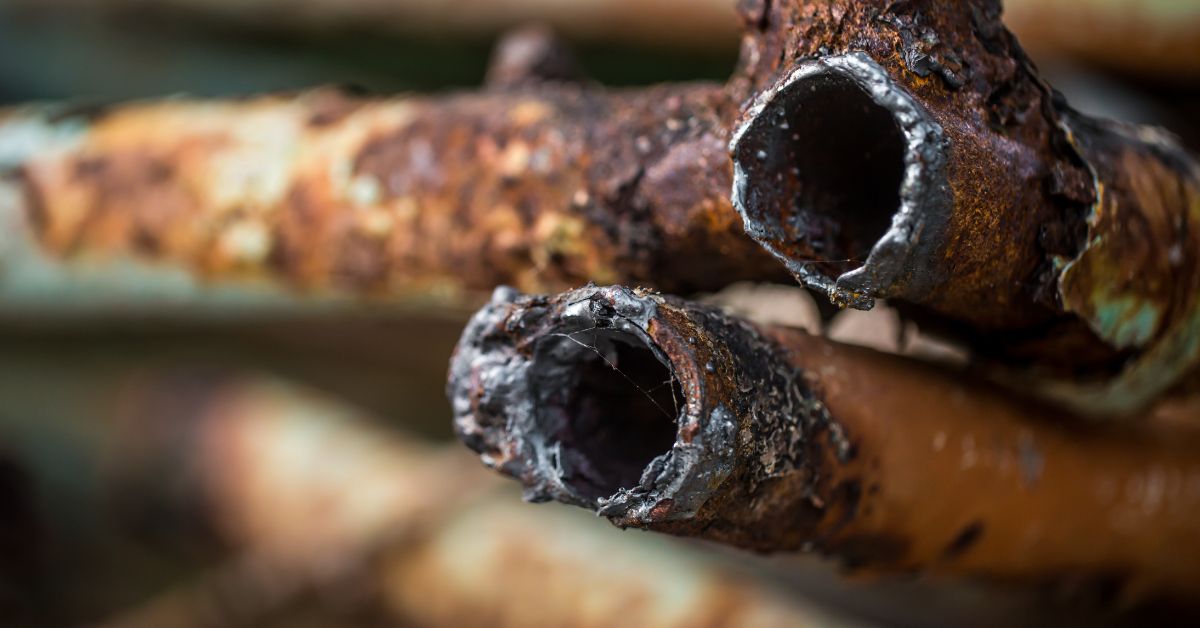Understanding the Basics of Plumbing Systems
Defining Repiping and Pipe Installation
When it comes to plumbing systems, understanding the difference between repiping and pipe installation is crucial for homeowners and property managers. Repiping involves replacing the existing pipes in a home or building, typically due to age, wear, or material failure. This process is often necessary when pipes have deteriorated to the point where repairs are no longer effective. On the other hand, pipe installation refers to the process of setting up a new plumbing system, usually in new constructions or during major renovations. This involves designing and laying out a network of pipes to ensure efficient water flow and drainage. Each service has its unique scenarios; repiping is often required in older homes with outdated plumbing, while pipe installation is a key step in new builds.
Common Plumbing Materials
Plumbing systems can be constructed from a variety of materials, each with its own set of advantages and disadvantages. Common materials include copper, PEX, and PVC. Copper is renowned for its durability and has been a staple in plumbing for decades, offering excellent resistance to corrosion and bacteria. However, it can be expensive and is susceptible to freezing in colder climates. PEX, or cross-linked polyethylene, is a flexible and cost-effective alternative that is easy to install and resistant to scale and chlorine. PVC, or polyvinyl chloride, is another popular choice, especially for drainage systems, due to its affordability and resistance to corrosion. However, it may not be suitable for hot water lines. Choosing the right material depends on the specific needs of the plumbing system and the environmental conditions of the location.
When to Consider Repiping
Signs Your Home Needs Repiping
Recognizing the signs that your home may need repiping is essential for maintaining a functional and safe plumbing system. Frequent leaks are a clear indicator that your pipes may be deteriorating. Additionally, discolored water, often a rusty brown, can signal corrosion within the pipes, potentially affecting water quality. Reduced water pressure is another common sign, often caused by mineral buildup or leaks within the system. Understanding the lifespan of different pipe materials can also guide homeowners in determining when replacement is necessary. For instance, galvanized steel pipes typically last 20 to 50 years, while copper pipes can last over 50 years. If your home is approaching these timelines, it might be time to consider repiping.
Benefits of Repiping
Repiping offers numerous benefits that can significantly enhance the quality and efficiency of your home's plumbing system. One of the primary advantages is improved water quality, as new pipes eliminate the risk of contaminants leaching into the water supply. Additionally, repiping can restore optimal water pressure, ensuring a consistent and powerful flow throughout the home. From a financial perspective, repiping can lead to long-term cost savings by reducing the need for frequent repairs and lowering water bills due to improved efficiency. Moreover, a new plumbing system can increase the overall value of your property, making it an attractive investment for potential buyers. These benefits make repiping a worthwhile consideration for homeowners looking to enhance their plumbing infrastructure.
Understanding Pipe Installation for New Constructions
Planning and Designing a New Plumbing System
Designing a new plumbing system for a construction project involves several critical steps to ensure functionality and compliance with local building codes. The planning phase begins with a thorough assessment of the building's layout and water needs, followed by the creation of a detailed blueprint that outlines the placement of pipes, fixtures, and appliances. It's essential to consider factors such as water pressure, drainage efficiency, and the potential for future expansions. Compliance with local building codes and regulations is paramount, as it ensures the safety and reliability of the plumbing system. Engaging with experienced professionals during the planning stage can help navigate these complexities, ensuring a seamless installation process.
Choosing the Right Plumbing Contractor
Selecting a qualified plumbing contractor is a crucial step in ensuring the success of a new pipe installation project. Homeowners and property managers should seek contractors with a proven track record of quality workmanship and reliability. When evaluating potential contractors, it's important to ask questions about their experience with similar projects, their approach to problem-solving, and their familiarity with local building codes. Additionally, reviewing customer testimonials and checking for proper licensing and insurance can provide further assurance of a contractor's capabilities. By taking the time to choose the right contractor, you can ensure that your new plumbing system is installed to the highest standards, providing peace of mind and long-term reliability.
Cost Considerations and Budgeting
Factors Influencing Costs
Understanding the cost factors involved in repiping and new pipe installation is essential for effective budgeting. Several elements contribute to the overall cost, including labor, materials, and permits. Labor costs can vary significantly based on the complexity of the project and the contractor's expertise. Material costs are influenced by the type and quality of pipes chosen, with copper typically being more expensive than PEX or PVC. Additionally, obtaining the necessary permits can add to the overall expense. It's important to be aware of potential hidden costs, such as unforeseen repairs or upgrades required during the installation process. Proper planning and consultation with professionals can help mitigate these unexpected expenses.
Financing Options
For homeowners undertaking repiping or new pipe installation projects, exploring financing options can ease the financial burden. Many contractors offer financing plans that allow for manageable monthly payments, making it easier to budget for these essential upgrades. Additionally, homeowners may consider home equity loans or lines of credit as potential financing solutions. It's crucial to evaluate the terms and interest rates of each option to determine the most cost-effective choice. By planning financially and exploring available financing options, homeowners can ensure that their plumbing projects are completed without compromising their financial stability.
Maintenance and Longevity of Plumbing Systems
Routine Maintenance Tips
Maintaining both new and existing plumbing systems is key to extending their lifespan and ensuring optimal performance. Regular inspections are crucial for identifying potential issues before they escalate into costly repairs. Homeowners should routinely check for leaks, monitor water pressure, and ensure that drains are clear of obstructions. Additionally, scheduling professional maintenance services can provide a more thorough assessment of the system's condition. Timely repairs and proactive maintenance can prevent minor issues from developing into major problems, ultimately saving time and money in the long run.
Future-Proofing Your Plumbing
Incorporating modern plumbing technologies and upgrades can significantly enhance the efficiency and sustainability of your system. Smart home technology, such as leak detection sensors and automated water shut-off valves, can provide real-time monitoring and control, reducing the risk of water damage. Additionally, upgrading to energy-efficient fixtures and appliances can lower water consumption and utility bills. Future-proofing your plumbing system not only enhances its longevity but also aligns with growing environmental concerns, making it a wise investment for homeowners looking to optimize their property's value and functionality.
If You Need to Repipe Your Home, Call Quarry Hills Plumbing & HVAC
At Quarry Hills Plumbing & HVAC, we understand the importance of reliable and efficient plumbing systems. Whether you're considering repiping or installing a new plumbing system, our team of experienced professionals is here to help. Contact us today to learn more about our repiping services and how we can assist you in enhancing your home's plumbing infrastructure. Let us be your trusted partner in ensuring long-term plumbing reliability and efficiency.
Call Quarry Hills Plumbing & HVAC now at (508) 500-6832 or send us a message online.


